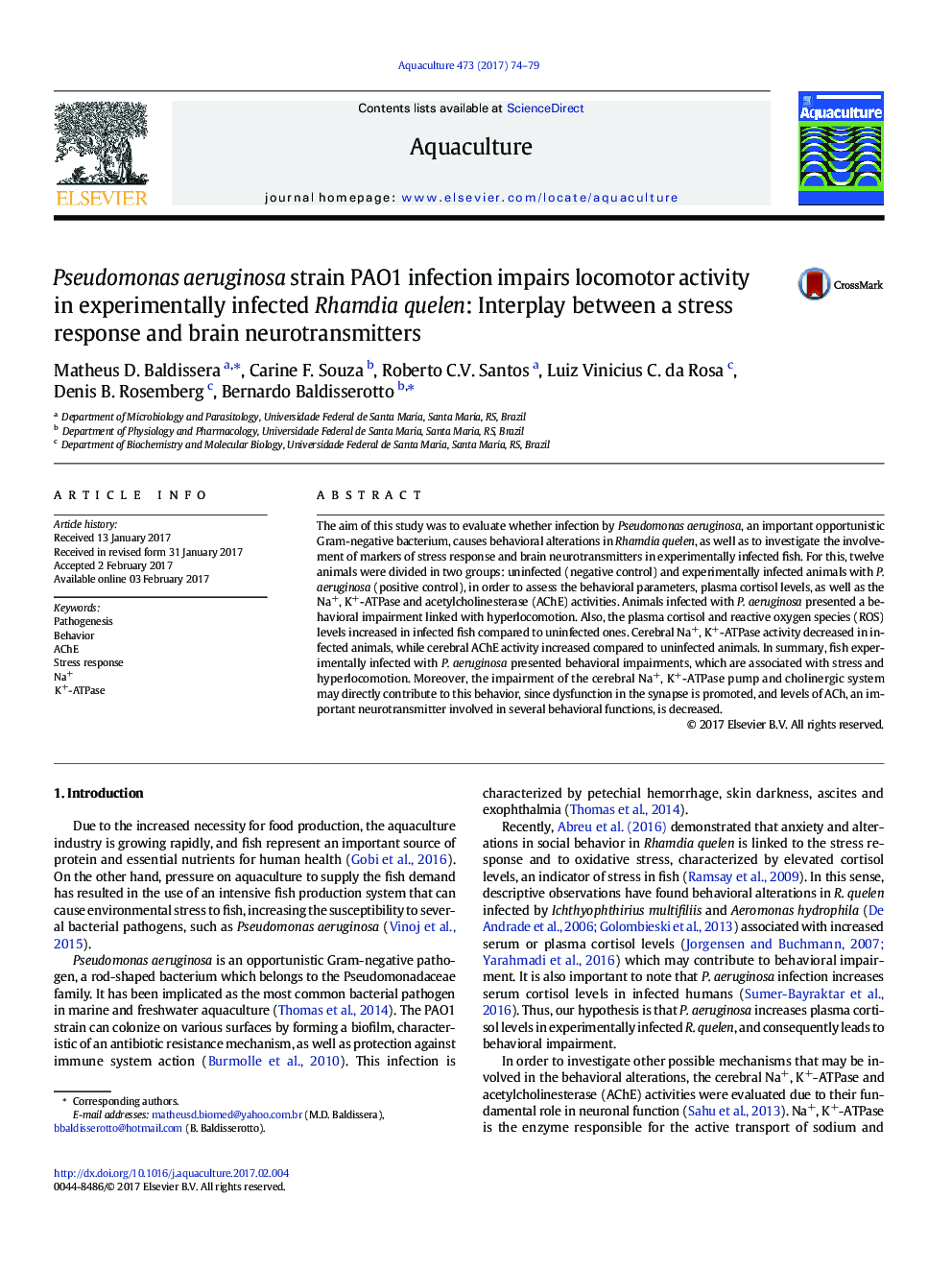| Article ID | Journal | Published Year | Pages | File Type |
|---|---|---|---|---|
| 5539012 | Aquaculture | 2017 | 6 Pages |
Abstract
The aim of this study was to evaluate whether infection by Pseudomonas aeruginosa, an important opportunistic Gram-negative bacterium, causes behavioral alterations in Rhamdia quelen, as well as to investigate the involvement of markers of stress response and brain neurotransmitters in experimentally infected fish. For this, twelve animals were divided in two groups: uninfected (negative control) and experimentally infected animals with P. aeruginosa (positive control), in order to assess the behavioral parameters, plasma cortisol levels, as well as the Na+, K+-ATPase and acetylcholinesterase (AChE) activities. Animals infected with P. aeruginosa presented a behavioral impairment linked with hyperlocomotion. Also, the plasma cortisol and reactive oxygen species (ROS) levels increased in infected fish compared to uninfected ones. Cerebral Na+, K+-ATPase activity decreased in infected animals, while cerebral AChE activity increased compared to uninfected animals. In summary, fish experimentally infected with P. aeruginosa presented behavioral impairments, which are associated with stress and hyperlocomotion. Moreover, the impairment of the cerebral Na+, K+-ATPase pump and cholinergic system may directly contribute to this behavior, since dysfunction in the synapse is promoted, and levels of ACh, an important neurotransmitter involved in several behavioral functions, is decreased.
Related Topics
Life Sciences
Agricultural and Biological Sciences
Aquatic Science
Authors
Matheus D. Baldissera, Carine F. Souza, Roberto C.V. Santos, Luiz Vinicius C. da Rosa, Denis B. Rosemberg, Bernardo Baldisserotto,
